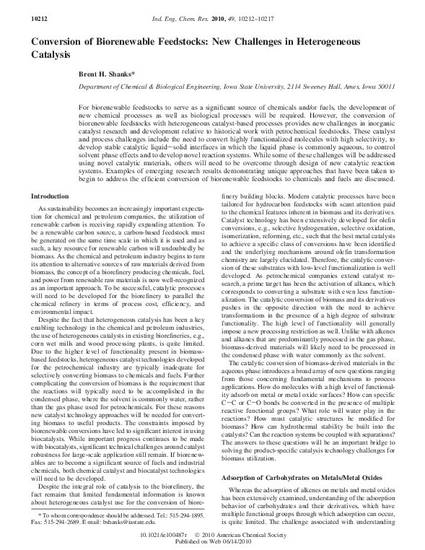
For biorenewable feedstocks to serve as a significant source of chemicals and/or fuels, the development of new chemical processes as well as biological processes will be required. However, the conversion of biorenewable feedstocks with heterogeneous catalyst-based processes provides new challenges in inorganic catalyst research and development relative to historical work with petrochemical feedstocks. These catalyst and process challenges include the need to convert highly functionalized molecules with high selectivity, to develop stable catalytic liquid-solid interfaces in which the liquid phase is commonly aqueous, to control solvent phase effects and to develop novel reaction systems. While some of these challenges will be addressed using novel catalytic materials, others will need to be overcome through design of new catalytic reaction systems. Examples of emerging research results demonstrating unique approaches that have been taken to begin to address the efficient conversion of biorenewable feedstocks to chemicals and fuels are discussed.
Available at: http://works.bepress.com/brent_shanks/16/

Reprinted (adapted) with permission from Industrial and Engineering Chemistry Research 49 (2010): 10212, doi: 10.1021/ie100487r. Copyright 2010 American Chemical Society.